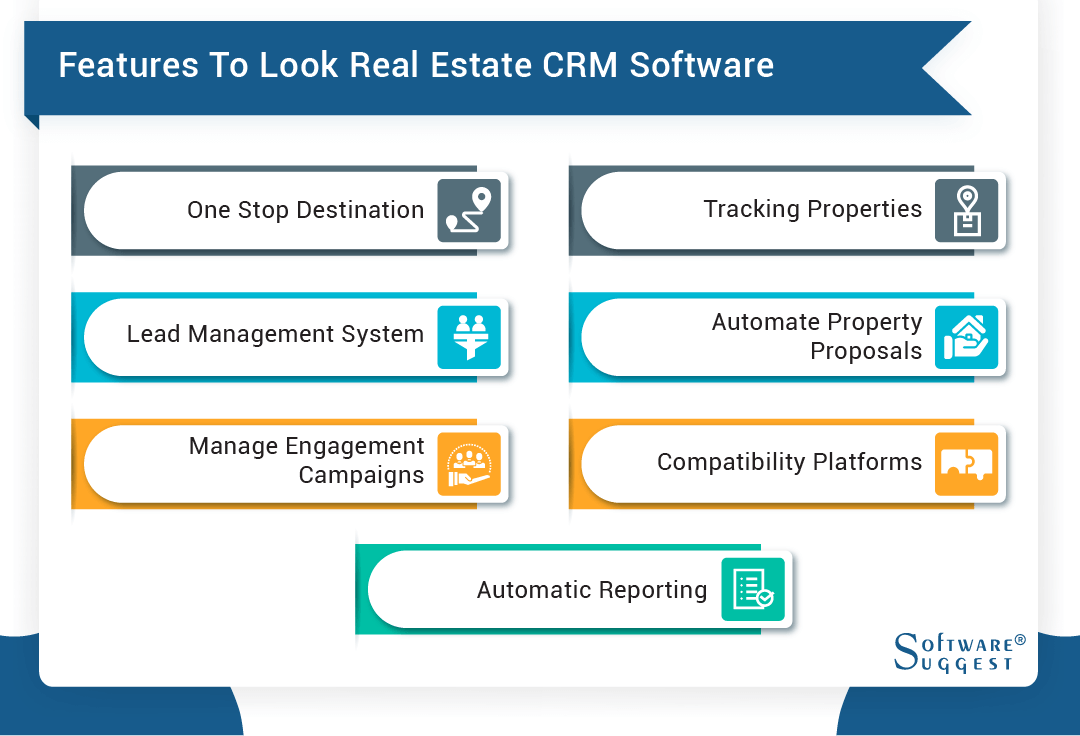Best CRM real estate solutions are crucial for success in today’s competitive market. Finding the right Customer Relationship Management system isn’t simply about choosing software; it’s about selecting a strategic partner that streamlines operations, enhances client relationships, and ultimately drives revenue growth. This exploration delves into the key features, integration capabilities, and selection criteria for real estate professionals of all sizes, from solo agents to large brokerage teams.
We will examine how different CRMs cater to the unique needs of various real estate professionals, comparing factors like user-friendliness, advanced features, and cost-effectiveness. The journey will cover essential functionalities, such as contact management, transaction management, and marketing automation, highlighting their impact on efficiency and productivity. We’ll also address data management best practices, integration with other business tools, and the importance of CRM analytics in tracking key performance indicators (KPIs).
Defining “Best” in Real Estate CRM
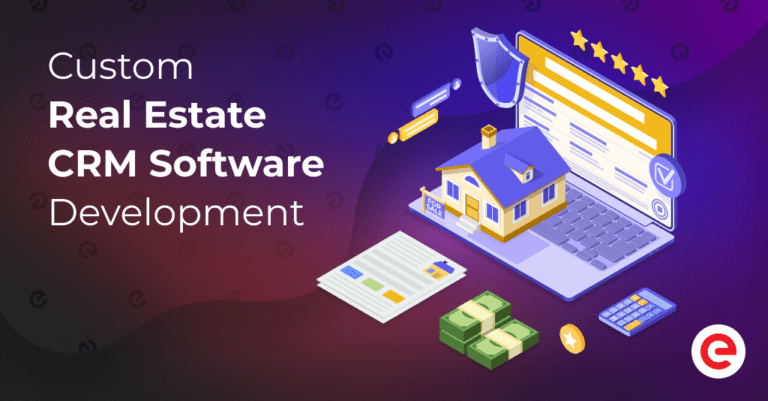
Selecting the “best” real estate CRM isn’t about finding a single perfect solution, but rather identifying the system that most effectively aligns with your specific needs and goals. Factors like team size, budget, and preferred working style all play a crucial role in determining optimal functionality.
Key Features of a Top-Tier Real Estate CRM
A top-tier real estate CRM goes beyond basic contact management. It should streamline the entire sales process, from lead generation to closing, offering robust features that enhance efficiency and productivity. Essential features typically include comprehensive contact management with detailed property information, lead tracking and nurturing capabilities, robust communication tools (email marketing, SMS integration), transaction management features, reporting and analytics dashboards for performance monitoring, and seamless integration with other essential real estate tools.
Advanced features might include market analysis tools, automated workflows, and team collaboration features.
CRM Feature Adaptation for Different Real Estate Professionals
The ideal CRM varies significantly based on the user’s role within the real estate industry. Solo agents might prioritize user-friendliness and lead management, while larger teams require advanced collaboration and task assignment features. Brokers need robust reporting and analytics to oversee their entire operation, potentially needing more advanced features for team management and performance tracking. A successful CRM adapts to these varying needs through customizable dashboards, flexible user permissions, and scalable features to accommodate growth.
Balancing User-Friendliness, Advanced Features, and Affordability, Best crm real estate
Choosing a CRM requires careful consideration of the trade-offs between user-friendliness, advanced features, and cost. An overly complex system, no matter how feature-rich, can hinder productivity if it’s difficult to learn and use. Conversely, a simple, affordable CRM might lack the advanced features necessary for scaling a larger business or managing complex transactions. The “best” CRM strikes a balance, offering a user-friendly interface with sufficient advanced features to meet current and future needs, all within a reasonable budget.
Prioritizing features based on current business needs and anticipated growth is essential.
Comparison of Leading Real Estate CRMs
| CRM Name | Pricing | Key Features | User Reviews |
|---|---|---|---|
| Example CRM A | $X per month/user | Contact management, lead tracking, email marketing, basic reporting | Generally positive, praised for ease of use; some complaints about limited advanced features. |
| Example CRM B | $Y per month/user | Comprehensive contact management, advanced lead nurturing, transaction management, robust reporting, team collaboration tools | Mixed reviews; praised for powerful features but criticized for a steeper learning curve and higher price point. |
| Example CRM C | $Z per month/user (variable pricing based on features) | Customizable workflows, advanced analytics, market analysis tools, integrations with various third-party apps | Positive reviews from larger teams; praised for scalability and powerful features, but some users find it expensive. |
Essential Features of a Real Estate CRM
A robust Real Estate CRM is more than just a contact list; it’s a centralized hub for managing all aspects of your business, from lead generation to closing deals. Choosing the right CRM with the essential features can significantly improve efficiency and boost your bottom line. This section details the core functionalities that make a real estate CRM indispensable.
Contact Management
Effective contact management is the cornerstone of any successful real estate operation. A good CRM allows for efficient lead capture, meticulous organization of contact details, and comprehensive tracking of all communications. This ensures no potential client slips through the cracks.
- Lead Capture: The CRM should seamlessly integrate with various sources, such as your website, social media, and online advertising, automatically capturing lead information. This eliminates manual data entry and ensures all leads are recorded consistently.
- Contact Organization: The CRM should allow for detailed contact profiles, including personal information, property preferences, communication history, and transaction details. The ability to segment contacts based on various criteria (e.g., location, price range, property type) is crucial for targeted marketing.
- Communication Tracking: A comprehensive CRM logs all communication – emails, phone calls, text messages, and even in-person meetings – providing a complete history of your interactions with each contact. This ensures consistent follow-up and prevents missed opportunities.
Transaction Management
Transaction management features streamline the often complex process of buying and selling properties. By centralizing all transaction-related information, the CRM minimizes administrative burdens and helps agents close deals more efficiently.
- Centralized Document Storage: The CRM should provide secure storage for all relevant documents, such as purchase agreements, disclosures, and inspection reports. This ensures easy access to essential information throughout the transaction lifecycle.
- Task and Deadline Management: The CRM should allow agents to set tasks and deadlines associated with each transaction, ensuring timely completion of all necessary steps. Automated reminders prevent missed deadlines and potential complications.
- Progress Tracking: Real-time tracking of transaction progress provides a clear overview of the status of each deal. This helps agents prioritize their efforts and identify potential roadblocks early on.
Marketing Automation
Marketing automation features within a real estate CRM significantly enhance an agent’s ability to nurture leads and generate new business. Automated campaigns save time and resources while ensuring consistent communication with potential clients.
- Automated Email Campaigns: The CRM should facilitate the creation and scheduling of automated email sequences, such as welcome emails, property updates, market reports, and follow-up messages after showings. For example, an automated email could be triggered when a lead visits a specific property listing on your website, providing them with additional information and scheduling a follow-up call.
- Targeted Marketing: Segmentation features allow agents to create highly targeted marketing campaigns based on lead demographics, property preferences, and other criteria. This ensures that the right message reaches the right audience at the right time.
- Performance Tracking: Marketing automation platforms usually provide analytics dashboards that track campaign performance, allowing agents to measure the effectiveness of their marketing efforts and optimize future campaigns.
Workflow Diagram: Managing Leads from Initial Contact to Closing
Imagine a simple flowchart. It starts with a “Lead Capture” box (e.g., website form submission). This leads to a “Contact Created” box in the CRM, where the lead’s details are automatically recorded. Next is a “Automated Welcome Email Sent” box, followed by a “First Contact/Scheduling Showing” box, which is then followed by “Showing Conducted” and “Feedback Collected”. Then, a “Negotiation and Offer” box leads to “Contract Signed” and finally “Closing Completed”.
Each box represents a stage in the process, and the arrows indicate the flow of activities. The CRM facilitates each step, from recording communication details to managing tasks and deadlines. The entire process is tracked within the system, providing a clear and concise record of each client interaction and transaction.
CRM Integration and Data Management: Best Crm Real Estate
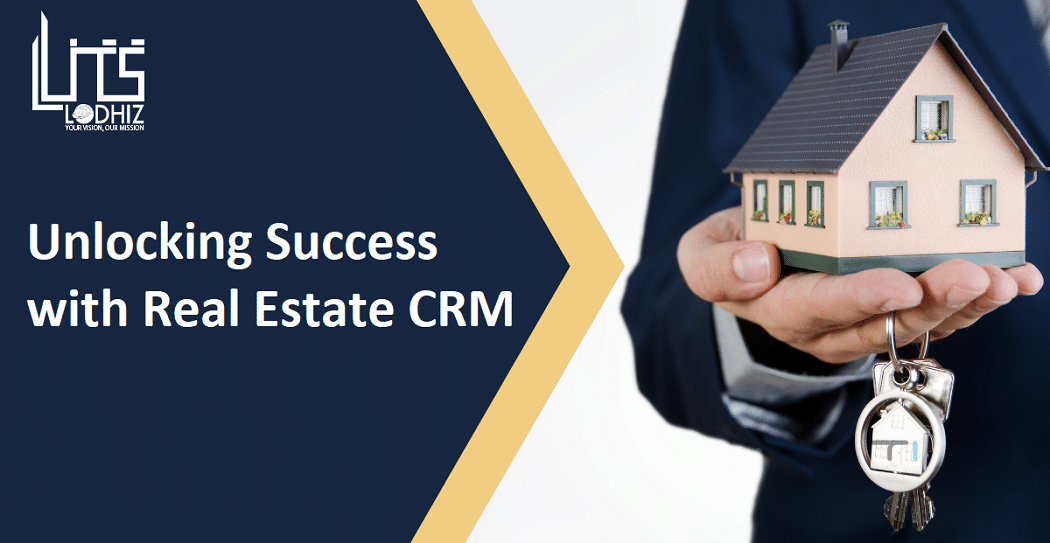
A robust real estate CRM is more than just a contact list; it’s the central hub for all your business operations. Integrating it with other tools and maintaining data accuracy are crucial for maximizing its potential and achieving efficiency. This section explores the importance of integration, best practices for data management, potential challenges of data migration, and a practical guide for importing contact data.Integrating your real estate CRM with other business tools significantly enhances productivity and provides a holistic view of your operations.
This interconnectedness streamlines workflows, reduces manual data entry, and minimizes the risk of errors.
Benefits of CRM Integration with Other Business Tools
Seamless integration with marketing platforms, email providers, and other real estate-specific tools offers several advantages. Connecting your CRM to your marketing automation platform allows for targeted campaigns based on client segmentation within the CRM. This ensures your marketing efforts are efficient and effective. Similarly, integration with email marketing services allows for personalized email sequences and automated follow-ups, nurturing leads and maintaining client relationships.
Linking to property listing sites enables automatic updates of property details, saving time and ensuring accuracy. The result is a more efficient and effective real estate operation.
Best Practices for Maintaining Data Accuracy and Consistency
Maintaining data accuracy and consistency is paramount for effective CRM usage. Establish clear data entry protocols and train your team on their consistent application. Regular data cleansing and deduplication are essential to prevent inaccuracies and improve the quality of your data. Implementing data validation rules within the CRM itself can prevent incorrect information from being entered. Regularly review and update contact information, property details, and transaction records to ensure they reflect the current situation.
Consider using data import tools that automatically identify and correct inconsistencies. These practices lead to improved decision-making based on reliable data.
Challenges of Data Migration When Switching CRMs
Migrating data from one CRM to another can present several challenges. Data incompatibility between systems is a frequent issue. Different CRMs often use varying data structures and field names, making direct transfer difficult. Data loss during the migration process is another significant risk. Incomplete or inaccurate data in the old system can be amplified during the transfer.
The time and resources required for data migration can be substantial, disrupting workflows. A well-planned migration strategy, involving data cleaning, mapping, and testing, is crucial to minimize these challenges.
Step-by-Step Guide for Importing Contact Data
Before importing, ensure your data is clean and consistent. Review your spreadsheet for duplicate entries, inconsistencies, and missing information. Correct any errors before proceeding. Next, map your spreadsheet columns to the corresponding fields in your CRM. This ensures data is imported into the correct fields.
Then, choose your import method; most CRMs offer various options, such as CSV, Excel, or direct database import. After importing, verify the data’s accuracy. Review a sample of imported records to ensure the information is correctly populated and formatted. Finally, run a data deduplication process to remove any duplicates created during the import. This methodical approach minimizes errors and ensures data integrity.
Choosing the Right CRM for Specific Needs
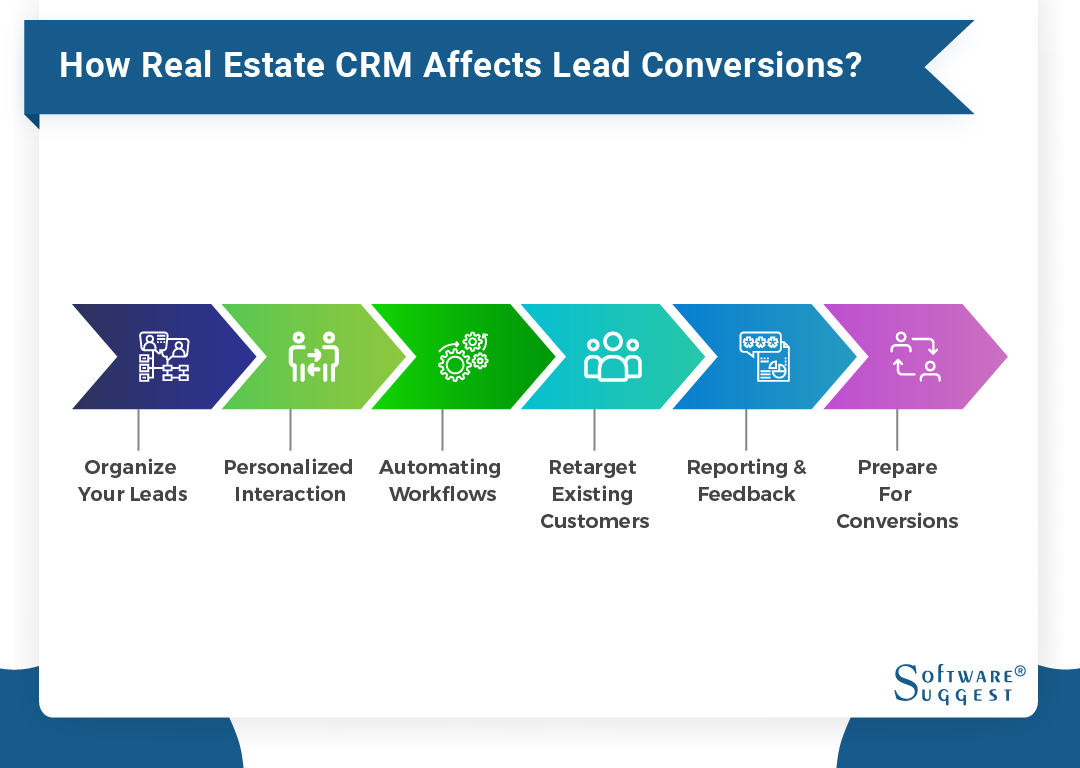
Selecting the optimal CRM hinges on understanding your unique business requirements. Factors such as team size, business model, and future growth projections significantly influence the type of CRM best suited for your real estate operation. A system that works flawlessly for a solo agent might be utterly inadequate for a large brokerage with multiple teams and complex workflows.
Conversely, an overly complex and expensive system might be overkill for a smaller operation. Careful consideration of these aspects ensures a smooth transition and maximized ROI.
CRM Suitability for Solo Agents vs. Large Brokerage Teams
Solo agents typically require a simpler, more streamlined CRM. They need a system that is easy to use, focuses on contact management, and provides basic marketing automation tools. Features like advanced reporting and team collaboration functionalities are often unnecessary. In contrast, large brokerage teams need a robust system capable of managing numerous agents, clients, transactions, and marketing campaigns simultaneously.
They require sophisticated features such as lead assignment, performance tracking, comprehensive reporting, and robust integration with other business tools. A scalable platform with role-based access control is also crucial for maintaining data security and efficiency within a larger organization. For instance, a solo agent might find a user-friendly system like Follow Up Boss sufficient, while a large brokerage might opt for a more comprehensive solution like kvCORE or LionDesk, which offer advanced features and team management capabilities.
Evaluating CRM Scalability for Future Growth
The ability of a CRM to adapt to future growth is paramount. Consider factors such as the CRM’s capacity to handle an increasing number of contacts, transactions, and users. Evaluate the vendor’s track record in supporting growing businesses. Look for systems that offer flexible pricing models that scale with your needs, rather than locking you into contracts with inflexible limitations.
For example, cloud-based CRMs often offer greater scalability than on-premise solutions. Before committing, request case studies from the vendor showcasing their success in supporting businesses similar to yours that have experienced significant growth. Assess whether the CRM can easily integrate with other tools you might need in the future, such as marketing automation platforms or accounting software.
Questions to Ask CRM Vendors
Before selecting a CRM, real estate professionals should thoroughly vet potential vendors. This involves asking crucial questions to ensure the chosen system aligns perfectly with their needs. Clarify the vendor’s implementation process, including training and support options. Inquire about data security protocols and disaster recovery plans. Assess the vendor’s reputation and customer support responsiveness.
Obtain references and speak with other real estate professionals who use the same CRM to gather firsthand insights into their experiences. Investigate the CRM’s reporting and analytics capabilities to ensure they meet your specific reporting requirements. Confirm the CRM’s compatibility with your existing software and hardware infrastructure. Finally, negotiate pricing and contract terms to ensure they are favorable and aligned with your budget and business goals.
Best CRM Options for Different Real Estate Business Models
| Business Model | Recommended CRM | Rationale | Alternative CRM |
|---|---|---|---|
| Residential Sales | Follow Up Boss | User-friendly interface, strong lead management, and affordable pricing for individual agents or small teams. | BoomTown ROI |
| Commercial Real Estate | Realvolve | Robust features for managing complex commercial transactions, including detailed property information and client relationship management. | HighLevel |
| Property Management | Buildium | Comprehensive property management features, including tenant communication, lease management, and maintenance tracking. | AppFolio |
| Luxury Real Estate | kvCORE | Advanced marketing tools, robust client relationship management, and sophisticated reporting for high-value transactions. | Chime |
Advanced CRM Capabilities for Real Estate

A robust real estate CRM offers far more than basic contact management. Advanced features unlock significant potential for increased efficiency, improved sales strategies, and enhanced client relationships, ultimately boosting profitability. Leveraging these capabilities is crucial for staying competitive in today’s dynamic market.
Integrating advanced functionalities into your CRM workflow allows real estate professionals to move beyond simple data storage and into proactive, data-driven decision-making. This shift enhances operational efficiency and empowers agents to better serve their clients.
CRM Analytics and Key Performance Indicators (KPIs)
Tracking key performance indicators (KPIs) through CRM analytics provides invaluable insights into the effectiveness of sales strategies and agent performance. By monitoring metrics such as lead conversion rates, average deal size, marketing campaign ROI, and agent response times, businesses can identify areas of strength and weakness. This data-driven approach enables informed adjustments to marketing campaigns, sales processes, and agent training, optimizing resource allocation for maximum impact.
For example, if analytics reveal a low conversion rate from online leads, the marketing team might revise their online strategy or the sales team might receive additional training on lead qualification.
Mobile Accessibility and Agent Productivity
Mobile accessibility is paramount for today’s real estate agents. A CRM with a user-friendly mobile app empowers agents to access and update client information, manage schedules, and communicate with clients seamlessly, regardless of location. This constant connectivity ensures responsiveness and fosters stronger client relationships. Imagine an agent receiving a notification on their phone about a new listing matching a client’s criteria; they can immediately contact the client, potentially securing a deal ahead of the competition.
This immediate responsiveness is a significant differentiator in a competitive market.
CRM Features Supporting Team Collaboration and Communication
Effective team collaboration is essential for success in real estate. CRMs equipped with features such as shared calendars, task assignments, and integrated communication tools facilitate seamless information sharing and coordinated efforts. Shared calendars prevent scheduling conflicts and ensure team members are aware of each other’s activities. Task assignment features allow for clear delegation of responsibilities and track progress on various projects.
Integrated communication tools, such as internal messaging or shared document repositories, streamline communication and minimize delays. For instance, a team can use the CRM’s shared calendar to coordinate open houses, ensuring adequate coverage and minimizing conflicts.
CRM Reporting and Improved Sales Strategies
CRM reporting capabilities provide a comprehensive overview of sales performance, allowing businesses to identify trends, assess the effectiveness of different marketing channels, and refine their sales strategies. Detailed reports on lead sources, conversion rates, and sales cycles provide valuable insights into what’s working and what needs improvement. For example, if reports consistently show that a particular marketing campaign is underperforming, resources can be reallocated to more effective strategies.
Similarly, analyzing sales cycle data can reveal bottlenecks in the process, enabling targeted improvements to enhance efficiency and shorten the time to close deals. This data-driven approach ensures that sales efforts are focused on the most productive avenues, maximizing return on investment.
Final Conclusion
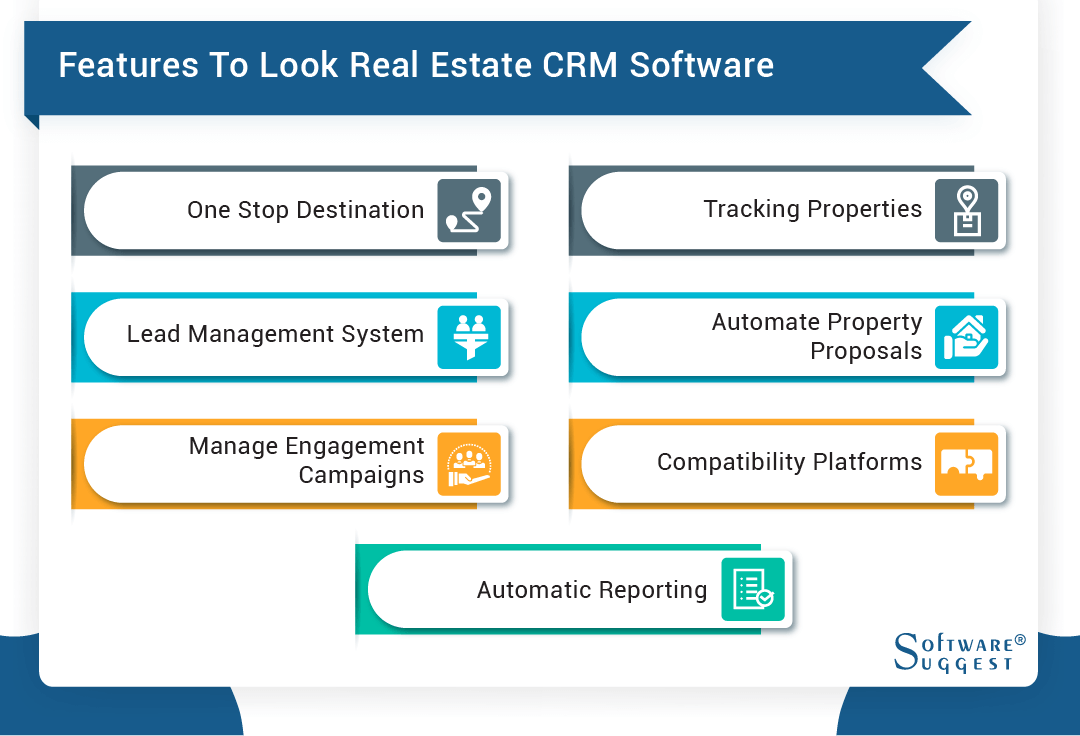
Ultimately, the “best” real estate CRM is subjective, dependent on individual needs and business goals. This exploration has provided a framework for evaluating various options, considering factors ranging from pricing and features to scalability and integration capabilities. By carefully considering your specific requirements and leveraging the insights presented, real estate professionals can confidently choose a CRM that empowers them to achieve greater success in a dynamic and competitive market.
Remember, the right CRM is an investment in efficiency, growth, and ultimately, client satisfaction.
Questions and Answers
What are the common pitfalls to avoid when choosing a real estate CRM?
Common pitfalls include neglecting proper data migration planning, overlooking integration capabilities with existing tools, and failing to adequately assess the CRM’s scalability for future growth. Insufficient user training and a lack of ongoing support can also hinder successful implementation.
How can I ensure data security with my chosen real estate CRM?
Prioritize CRMs with robust security features, including data encryption, access controls, and regular security audits. Review the vendor’s security policies and compliance certifications (e.g., SOC 2) to ensure they meet your data protection requirements.
Can a real estate CRM help with lead generation?
Yes, many real estate CRMs offer features to support lead generation, including lead capture forms, automated email campaigns, and integration with marketing automation platforms. These tools help nurture leads and convert them into clients more effectively.

